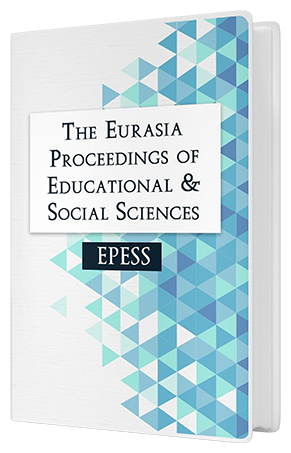THE BANDWAGON EFFECT OF LEADERS' ENTRY STRATEGIES ON FOLLOWERS' ENTRY STRATEGIES
Keywords:
Foreign direct investments, entry mode, bandwagon effect, emerging countryAbstract
Firms, which have to compete with global firms in domestic market, try to internationalize for gaining competitive advantage. The aim of this study is to recommend a conceptual framework to explain the dynamics of internationalization process of leader and follower firms that internationalize from an emerging country. In this study, author tries to figure out the determinants of entry mode decisions of follower firms. In addition, bandwagon effect of leaders' entry mode strategies on followers' entry mode decisions should be investigated in this study. Multiple theories are used to explain the internationalization process of developing countries. Prepositions are given to present the bandwagon effect of leaders' entry strategies on followers' entry strategies. According to the conceptual model, leaders' entry strategies create a bandwagon effect on followers' entry strategies. Especially follower firms follow leader firms that form the reference group and learn from them. Other than previous studies, in the study this mechanism is explained with bandwagon effect. It is hoped that this study is helpful to enlighten the problem of determining the dynamics of internationalization process of emerging country firms. Moreover, this study integrates the international business and institutional theory literature with bandwagon effect and reference groups. The conceptual framework that is given in this study is beneficial for follower firms, which have to learn from leaders and provides academic contribution.Downloads
Published
Issue
Section
License
Copyright (c) 2017 The Eurasia Proceedings of Educational and Social Sciences

This work is licensed under a Creative Commons Attribution-NonCommercial-ShareAlike 4.0 International License.
The articles may be used for research, teaching, and private study purposes. Any substantial or systematic reproduction, redistribution, reselling, loan, sub-licensing, systematic supply, or distribution in any form to anyone is expressly forbidden. Authors alone are responsible for the contents of their articles. The journal owns the copyright of the articles. The publisher shall not be liable for any loss, actions, claims, proceedings, demand, or costs or damages whatsoever or howsoever caused arising directly or indirectly in connection with or arising out of the use of the research material. All authors are requested to disclose any actual or potential conflict of interest including any financial, personal or other relationships with other people or organizations regarding the submitted work.




